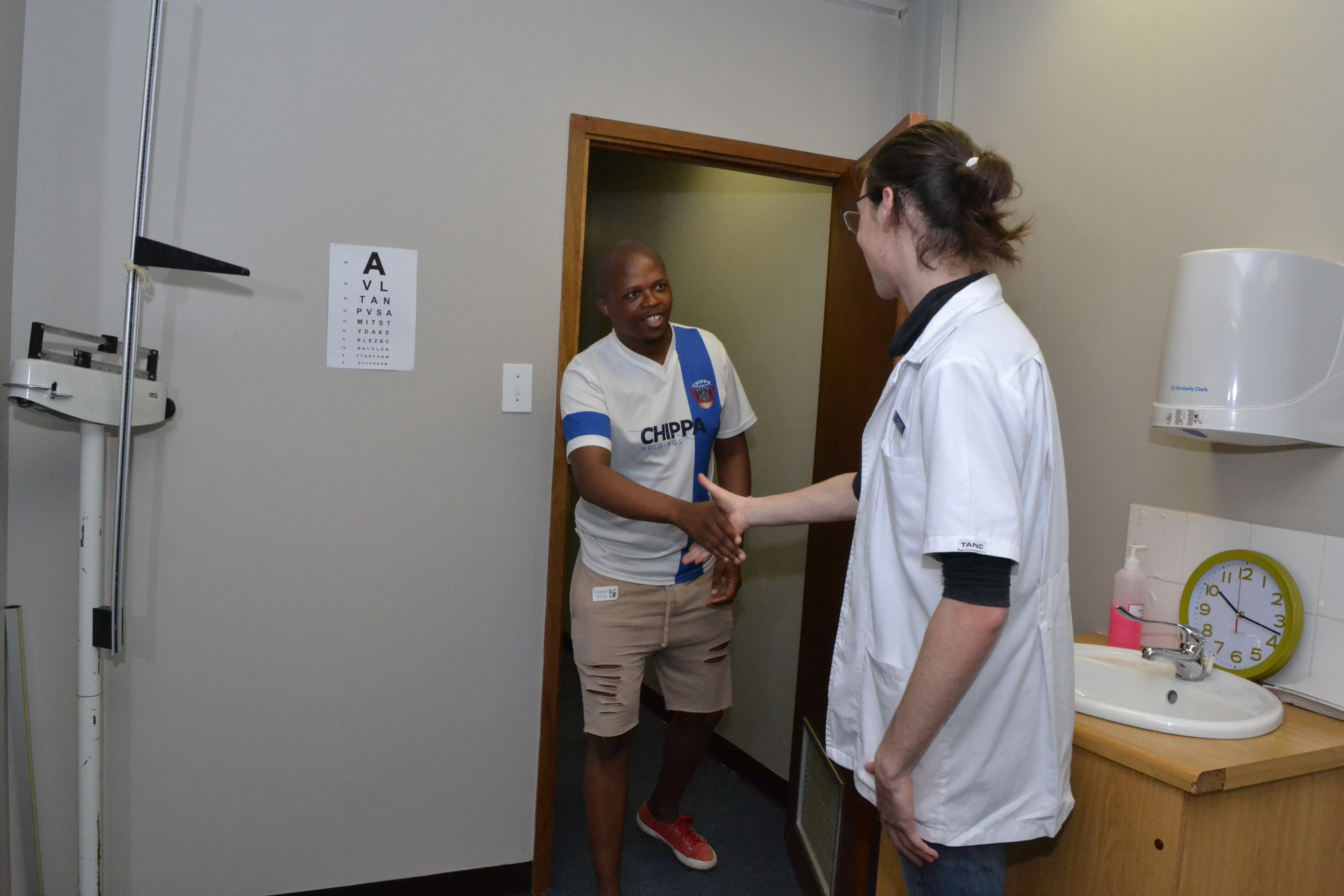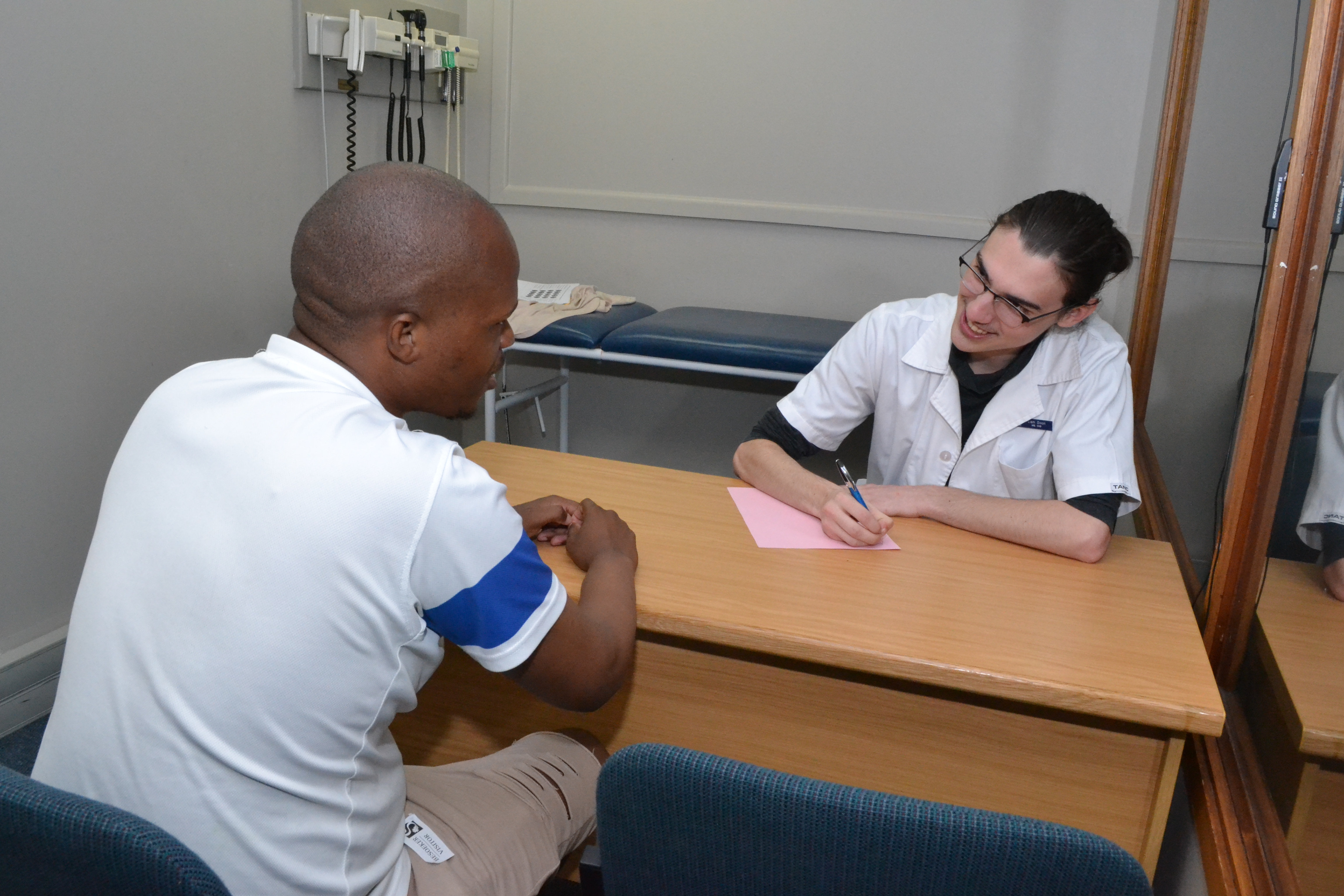Department of Health Professions Education
IsiXhosa Teaching & Learning
The needs analysis of Faculty of Medicine and Health Sciences (FMHS) regarding language requirements of undergraduate clinicians resulted in implementation of language teaching in 2012. IsiXhosa Clinical Communication (XCC) course was initiated not only to cater for the students' language requirements, but also to comply with the South African Constitution multilingualism mandate. The language directive of the Western Cape Department of Health (WCDoH) to complement Afrikaans and English, as widely spoken languages in the Western Cape, with isiXhosa and thereby improving quality of healthcare was also taken cognisance of. Another significant rationale for isiXhosa teaching and learning was also to enable students to conduct their clinical consultations with isiXhosa monolingual speakers in an intelligible manner. To achieve these goals, meaningful communicative competence for FMHS students in isiXhosa was imperative.
Teaching and learning of isiXhosa at FMHS is in alignment with higher education classroom teaching conventions. Therefore, it takes place in English. Small enrolment classes of 1:20 are maintained to ensure interactivity and to promote speaking of the language during the weekly 1hr 45 min classes. Audio-enhanced complementary e-Lessons that include engaging interactions and quizzes are used as an out-of-class intervention to reinforce the subject content students are taught in class. E-Lessons' quizzes serve as a basis for low stake e-Tasks that represent XCC on-line assessment. Successful completion of e-Lessons are thus used as a requirement of the e-Tasks. Both on-line activities prepare students for the main assessment, namely, oral tests.
Further preparation for oral assessments takes place through scaffolding, support and robust classroom interaction of lecturer-student, student-student pairing. Additionally, discipline-specific clinical consultation videos are utilised to simulate the clinician-patient interviews or examinations. Besides the e-Task assessment, students are assessed primarily through oral tests that initially progress from peer-to-peer, facilitator-student and student-simulated patients.
 A clinician greeting a monolingual isiXhosa speaking Simulated Patient (SP) in a manner that demonstrates his cultural awareness.
A clinician greeting a monolingual isiXhosa speaking Simulated Patient (SP) in a manner that demonstrates his cultural awareness.
 The clinician and the isiXhosa Simulated Patient (SP) engagement to elicit biographical details and reason for clinical encounter
The clinician and the isiXhosa Simulated Patient (SP) engagement to elicit biographical details and reason for clinical encounter

